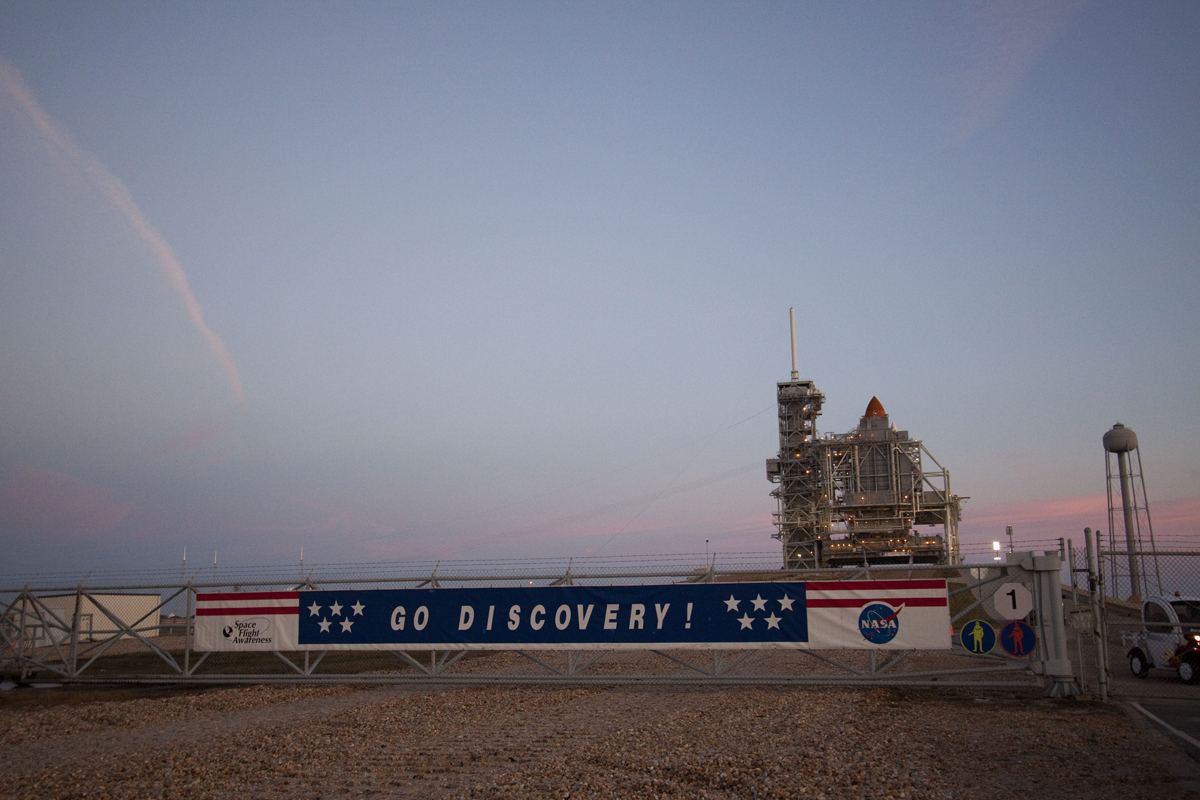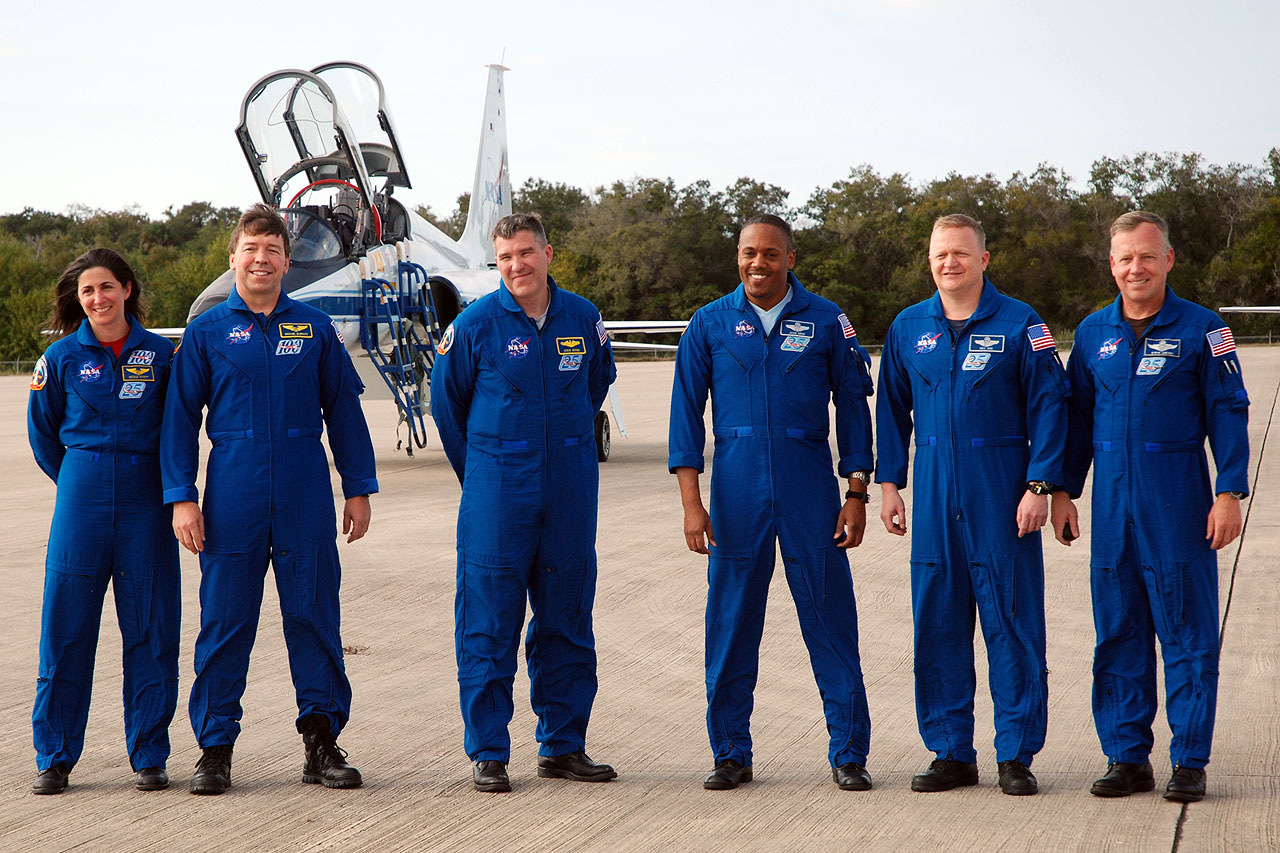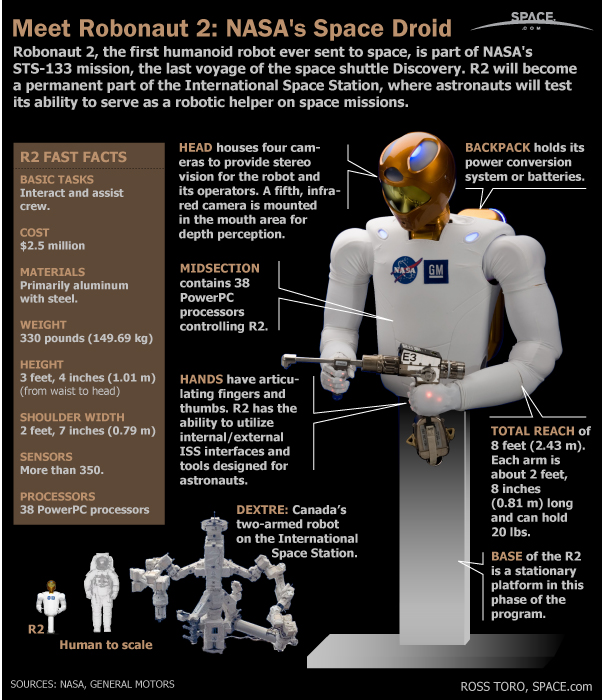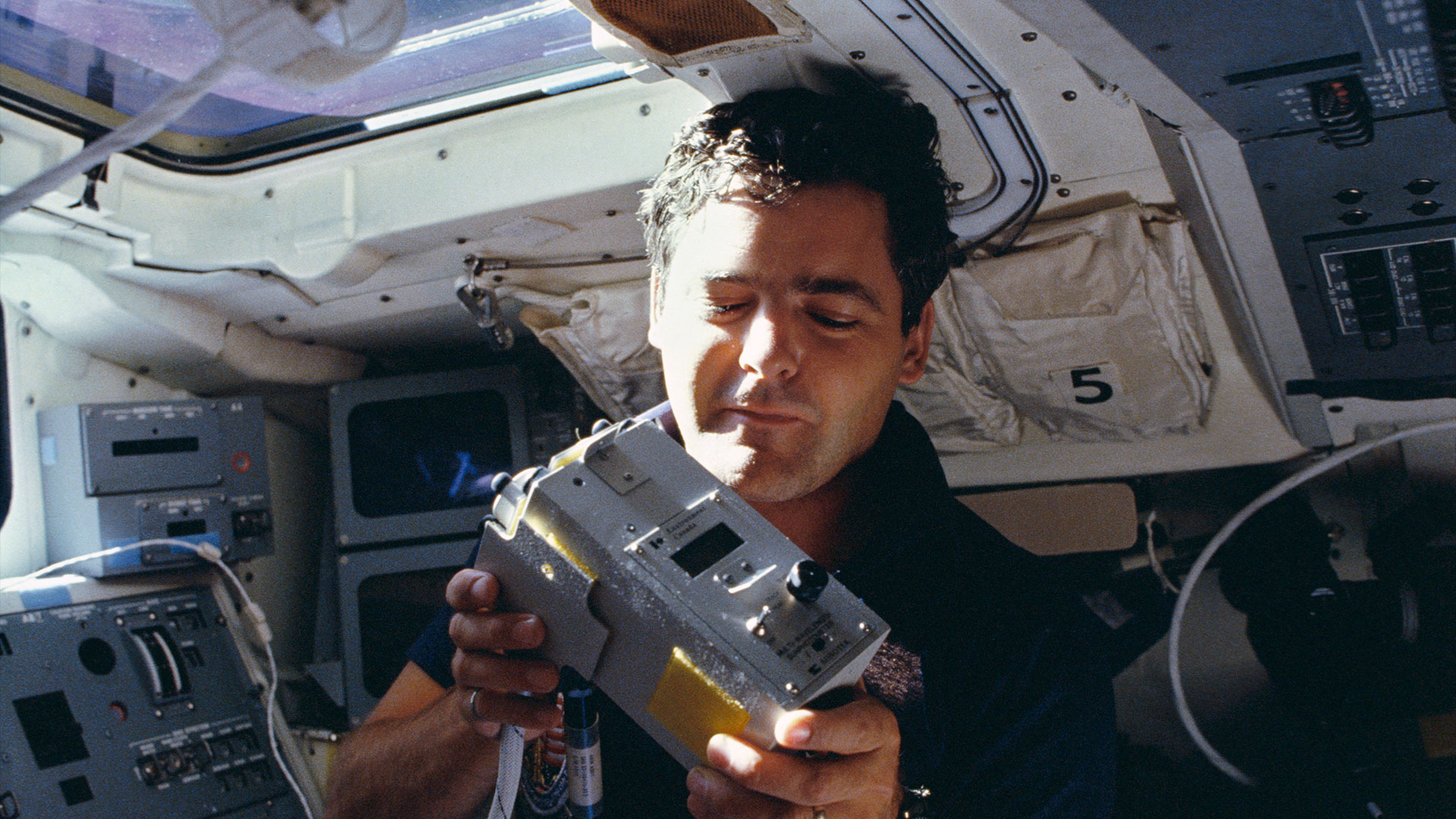Weather Looks Good for Space Shuttle Discovery's Thursday Launch

This story was updated at 5:41 p.m. EST.
CAPE CANAVERAL, Fla. – NASA is expecting good weather and an enthusiastic crowd of spectators for the space shuttle Discovery's last-ever launch this Thursday (Feb. 24).
Discovery is slated to lift off on Thursday at 4:50 p.m. EST (2150 GMT) from a seaside pad here at NASA's Kennedy Space Center. Current weather forecasts predict an 80 percent chance of favorable conditions for Thursday's launch.
"Weather is looking very good – we've had some great weather coming up to the launch," said shuttle weather officer Kathy Winters. "On launch day, everything looks good right now."
Discovery is back out at the Florida spaceport's seaside launch pad after several months of delays, initially due to a hydrogen gas leak, and later because of problems with the shuttle's external fuel tank. The official countdown for launch began today (Feb. 21) at 3 p.m. EST (2000 GMT). [Photos: Final Voyage of Space Shuttle Discovery]

"It's been an interesting, and exciting and probably challenging few months for us," NASA test director Jeff Spaulding said in a mission status briefing this morning. The shuttle's six-astronaut crew arrived at the launch site yesterday.
Discovery will launch just hours after an unmanned European cargo ship, called the Automated Transfer Vehicle-2 Johannes Kepler, will dock at the space station.
Get the Space.com Newsletter
Breaking space news, the latest updates on rocket launches, skywatching events and more!
"We'll be watching that closely," Spaulding said. "If there are any issues with docking, the program will go off and assess at that time."
While forecasts look promising for Thursday, the weather may become more of a concern if Discovery's launch is delayed, Winters said.
Forecasts beyond Thursday show a chance of showers in the area and low clouds, which could affect the shuttle's ability to get off the ground.
Still, the workers here at Kennedy Space Center are working hard to prepare Discovery for her final voyage into space.
"The people that have worked on this team have loved this vehicle for many, many years," Spaulding said. "It's a bittersweet thing for them to say goodbye to her for her last mission."
Spaulding also noted that this is one of the longest periods of "vertical flow" for the shuttle Discovery – the number of days in between when the vehicle is rolled out of its hangar-like Orbiter Processing Facility and launch.
The longest vertical flow period was during prelaunch preparations for the space shuttle Columbia's STS-35 mission, Spaulding said. The shuttle spent 183 days in the upright launch position before STS-35 lifted off on Dec. 2, 1990.
For the upcoming STS-133 mission, Discovery was rolled out of the Orbiter Processing Facility on Sept. 9, 2010. It initially moved to the launch pad for a November launch, but was returned to NASA's cavernous Vehicle Assembly Building - where shuttles are attached to their fuel tanks and solid rocket boosters - for repairs.
NASA returned Discovery to the launch pad on Feb. 1. If the shuttle launches as planned on Thursday, the vehicle's vertical flow period will amount to 170 days.

On its 11-day mission, Discovery will haul critical hardware and spare parts to the space station, including a storage room and a humanoid robot assistant named Robonaut 2. Discovery's upcoming flight will be the shuttle's 39th and final voyage into space before NASA retires its orbiter fleet later this year.
"Discovery has been a really remarkable vehicle for us and the program," Spaulding said. "She still has a few more miles to go before she sleeps, though. She's taken us on many amazing journeys throughout the years and we expect this flight to be no different from any of those."
You can follow SPACE.com Staff Writer Denise Chow on Twitter @denisechow as she covers Discovery's final space voyage from Cape Canaveral, Fla.
Join our Space Forums to keep talking space on the latest missions, night sky and more! And if you have a news tip, correction or comment, let us know at: community@space.com.

Denise Chow is a former Space.com staff writer who then worked as assistant managing editor at Live Science before moving to NBC News as a science reporter, where she focuses on general science and climate change. She spent two years with Space.com, writing about rocket launches and covering NASA's final three space shuttle missions, before joining the Live Science team in 2013. A Canadian transplant, Denise has a bachelor's degree from the University of Toronto, and a master's degree in journalism from New York University. At NBC News, Denise covers general science and climate change.
